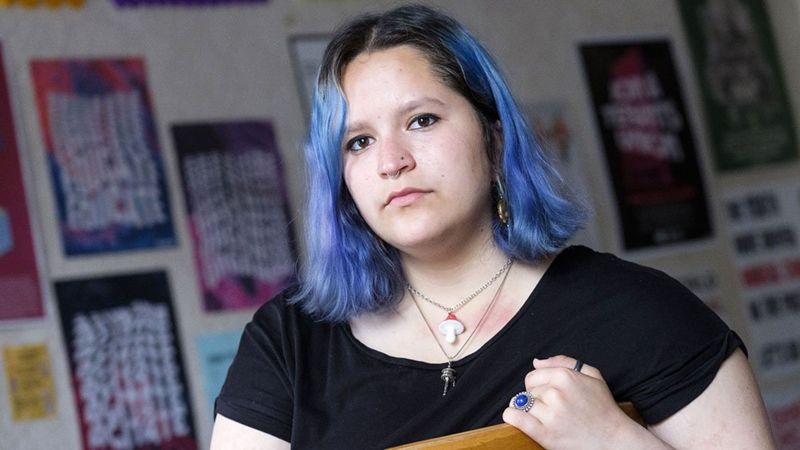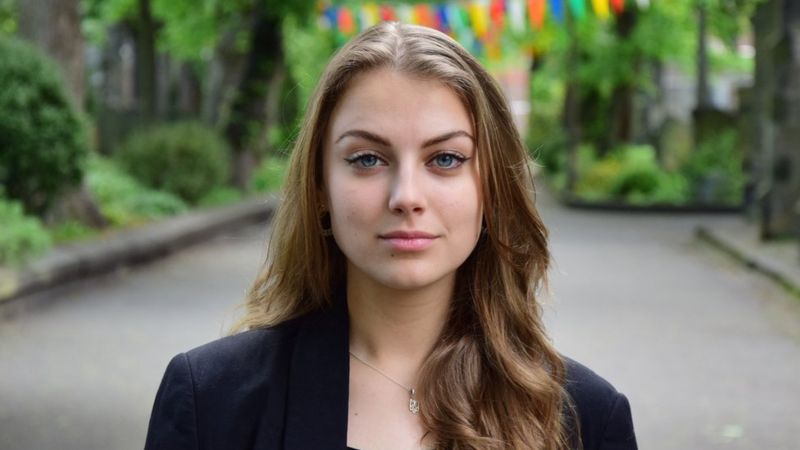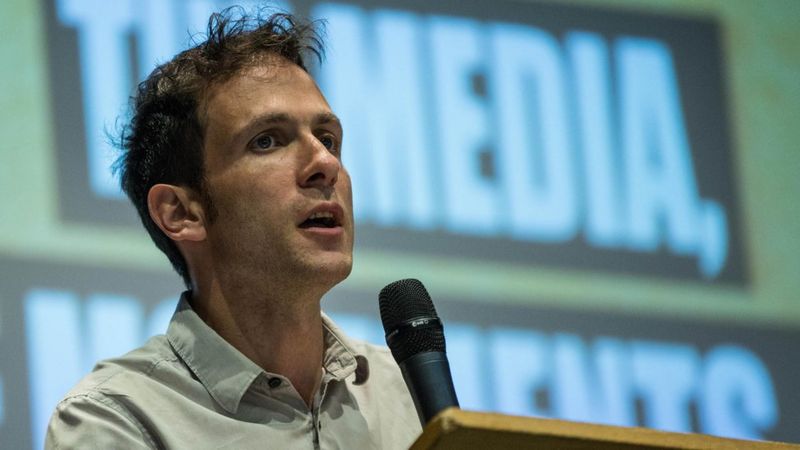BBC offers a classic case of “smooth propaganda”. Can you spot the lies and layers of deception?
 the establishment media is an enabler of endless wars and illegitimate oligarchic power
the establishment media is an enabler of endless wars and illegitimate oligarchic power
Patrice Greanville
The BBC (like the New York Times) excels at disinformation with an authoritative touch. These media engines do not shout. Who wants to use a vulgar ax when innuendo, used as a stiletto, can accomplish so much more? Not surprising, then, that their "facts" and "arguments" —calibrated for a refined audience, and slyly embedded in many layers of deception not liable to be spotted by the untrained eye—are couched in what appears to be established truths and impeccable reasoning. Yet, as this piece so efficiently illustrates, almost every paragraph is tainted with a lie. Can you identify the lies? We'll give you a hint: the article uses one major stratagem to inject its poison—reality inversion. Almost everything in it is upside down. The people attacked are actually the truthtellers; the lonely few pushing against the vileness of tyrannical plutocratic elites masquerading as zealous champions of peace, freedom, and democracy. The people defended—like the notorious White Helmets, long exposed as a creation of British intelligence to facilitate regime change ops—are vectors for the lies upholding the Western imperialist order. For good measure, the pain of the "victims" is also exaggerated. And it doesn't help any that, by design, the discourse is also conducted in a contextual miasma in which some witnesses—like Dr Schlosberg—is seen loftily casting a curse on both warring houses. (Progressives of this type, who always end up carrying water for the Empire, are a regular fixture in Western political debates). It's also ironic but to be expected for these avatars of priggish "journalistic integrity", that while they are quick to mention in ominous tones that Dr Schlosberg (in connection with the largely debunked Bucha story) has been using some "Russian state media", they conveniently forget that the BBC itself is a huge media and propaganda instrument of the British state, an aggressive participant in many of the topics and events discussed in this story.
So give it a try. We'd like to hear what you have to say.
Students accuse lecturer of sharing Russia war lies
By Chloe Hadjimatheou, Anna Meisel and Hazel Shearing
BBC News / 2 June 2022

Image source, Peter Byrne / BBC Image caption, Mariangela Alejandro travelled from Mexico to study in Edinburgh
It was the start of a new term at the University of Edinburgh and Mariangela Alejandro couldn't wait to take her next course. The 21-year-old history and politics student had heard good things about the professor, Tim Hayward.
But a few weeks into the course, she said things started to get "weird".
"He goes from talking about global financial markets [and] poverty, into this realm of conspiracy theories about [Syrian President Bashar al] Assad and Russia," she told the BBC's File on 4.
In a lecture obtained by the BBC, Prof Hayward outlined an argument that the renowned aid organisation, the White Helmets, may have helped fake a chemical attack in Syria. Russia has said the attack was "staged".
It comes after he and a number of other academics were accused of spreading misinformation about the war in Ukraine by MPs in the House of Commons in March - something Education Secretary Nadhim Zahawi said the government would "crack down on... hard".
In an interview to be aired on BBC Radio 4's File on 4 later, Prof Hayward said it was important to hear "both sides" when it comes to the war in Ukraine.
Prof Hayward's lecture concerned an attack in the Damascus suburb of Douma in 2018, which medics said killed 40 people. A year later, the Organisation for the Prohibition of Chemical Weapons said there were reasonable grounds to believe chlorine gas had been used. [A dissenting OPCW faction that completely debunked the official narrative was silenced by the organization and the media.—Ed)
Prof Hayward told students: "One narrative says the White Helmets helped rescue victims, provided evidence and gave witness statements about the chemical attack on Douma on 7 April 2018.
"The critics say the White Helmets were responsible for staging a false flag event to spur the West to attack the Syrian government. In fact, dispute about this case is still current."
It's an argument put forward by members of a collective of academics and bloggers he is in - the Working Group on Syria Propaganda and the Media (WGSPM).
Mariangela said she came away from the lecture thinking it "could be true" that the attack was faked, until she spoke to a Syrian friend.
"He [Prof Hayward] essentially frames it as... 'the Working Group is saying the truth, and they're not listening to us'," she said.
Prof Hayward told the BBC his course asks whether a claim simply should be accepted on the basis of someone's authority. It's clear to his students that this also applies to their teacher's words, he added.
He said he does not teach about Syria, but simply used an example in his class that he was familiar with.
Kvitka Perehinets, a Ukrainian student at the University of Edinburgh, has been anxiously following the war in her home country from a distance. Most of her family are there - some of them fighting - and she told the BBC she was distressed by Prof Hayward's recent tweets.
Days after a maternity hospital in Mariupol was bombed, Prof Hayward retweeted a Russian representative to the UN describing the attack as #fakenews. The tweet said the hospital had been controlled by the Ukrainian military, and no patients were there.
While one of Mariupol's maternity hospitals was no longer operational, the facility that had been bombed was a different one altogether - and did contain patients. On learning this, Prof Hayward updated his Twitter thread.
Asked by the BBC about the thread, he said: "I stand by the statement that I appended to that tweet, which is that we should strive to hear both sides."
He also suggested it was "uncertain" whether the maternity hospital was bombed by aircraft.
"Acquiring knowledge involves investigation, research and reasoning," he added. "If that's always going to be dismissed as disinformation, I think it's a very dangerous line to go down."
But Kvitka said "there are no two sides" to the conflict.
"The moment we start to sort of equate the two sides in the story is the moment we lose our humanity," she said. "The oppressor - in this case, Russia - should not be given the same kind of platform as those who are being oppressed."
Kvitka said she alerted the university to Prof Hayward's tweets, but received no reply.
Dr Nader Hashemi, director of the Centre for Middle East Studies at the University of Denver and a visiting scholar at the University of Cambridge, told the BBC he was "horrified" by the content about Syria in Prof Hayward's lecture.
"He couches his lecture in the language of global justice and citizenship, purporting to be objective," he said. "He's really engaged in, I think, a deeply distorted set of teachings."
'Academic freedom'
The University of Edinburgh says its programmes are approved by a board of studies. It says it is committed to "academic freedom" but that it takes "a strong view… against the spread of misinformation" and encourages students to report concerns.
The university and Prof Hayward have always maintained that his tweets and involvement with the WGSPM are separate from his academic work.
In England, the Office for Students (OfS) regulates universities by, for example, monitoring student complaints. But there is no direct equivalent to the OfS in Scotland.
Jamie Hepburn, Scotland's minister for Higher and Further Education, told the BBC that "attempts by anyone to repeat" Russian disinformation about Ukraine were "unacceptable" - but that universities "are solely responsible for internal institutional matters such as the conduct of their staff".
The Department for Education (DfE), which is responsible for education in England, said it expected "universities' due diligence processes to consider the reputational, ethical and security risks of false and dangerous narratives, and ensure that students are not misled by views that are clearly false".
When academics' tweets were raised in the Commons, Mr Zahawi said the minister for Higher and Further Education, Michelle Donelan, was "contacting those universities".
A Freedom of Information request found that Ms Donelan raised the issue in a meeting of the Higher Education taskforce. But the BBC understands that no individual universities have been contacted.
Academics sharing misinformation about the war in Ukraine are useful to Russia, said James Roscoe, UK ambassador to the UN. They add a veneer of respectability to the state's narrative, he told the BBC.
"Russian diplomats can then retweet them or the Russian state media retweets them," Mr Roscoe added.
The BBC has also spoken to Dr Justin Schlosberg, who specialises in media and journalism at Birkbeck, University of London. He has been criticised for retweeting Russian state media questioning what happened in the Ukrainian city of Bucha.
Since Russian forces were pushed back from Kyiv at the end of March, the bodies of more than 1,000 civilians have been discovered in the Bucha region. Photographs, footage and satellite images have shown bodies lying in the street.
Dr Schlosberg retweeted a video of Bucha's mayor speaking without mentioning a massacre. Russian media has been using the video to bolster the idea that the bodies appeared after the Russians had left the city.
Asked by the BBC what he thought happened in Bucha, Dr Schlosberg said: "I have no idea. My only understanding is that I think no-one else really knows what happened. I think there is a very strong likelihood that there were very serious atrocities, almost certainly the vast majority of which were committed by Russia."
Dr Schlosberg said he was also "concerned about disinformation that can sometimes come from Western governments". He added that the criticism on Twitter resembles "authoritarianism", and likened it to 1950s McCarthyism in the US, when Communists or suspected Communists were accused of trying to overthrow the government.
Birkbeck, University of London, said it "does not have any evidence that Dr Schlosberg has guided students or shared information in ways that are in breach of its Freedom of Speech policy" and that it was committed to free debate.
Last month, Ms Donelan said new legislation in England would "put a duty on universities to promote free speech and academic freedom, not just protect it".
Dr Hashemi said academics who share Russian misinformation may be a dangerous influence on young people. But asked whether they should be prevented from presenting personal views in lectures, he said any curbs on academic freedom would be a "disaster".
"We should not get into the business of deep censorship on university campuses," he added.
You can listen to the File on 4 episode at 20:00 BST on Tuesday 31 May on BBC Radio 4 or BBC Sounds.
The views expressed herein are solely those of the author and may or may not reflect those of The Greanville Post. However, we do think they are important enough to be transmitted to a wider audience.
If you find the above useful, pass it on! Become an "influence multiplier"!
Indecent Corporate Journos Won't Do the Job, So Independent Communicators Must. Support them by helping to disseminate their work.
[premium_newsticker id="211406"]
The views expressed are solely those of the author and may or may not reflect those of The Greanville Post
VIA A BACK LIVE LINK.

